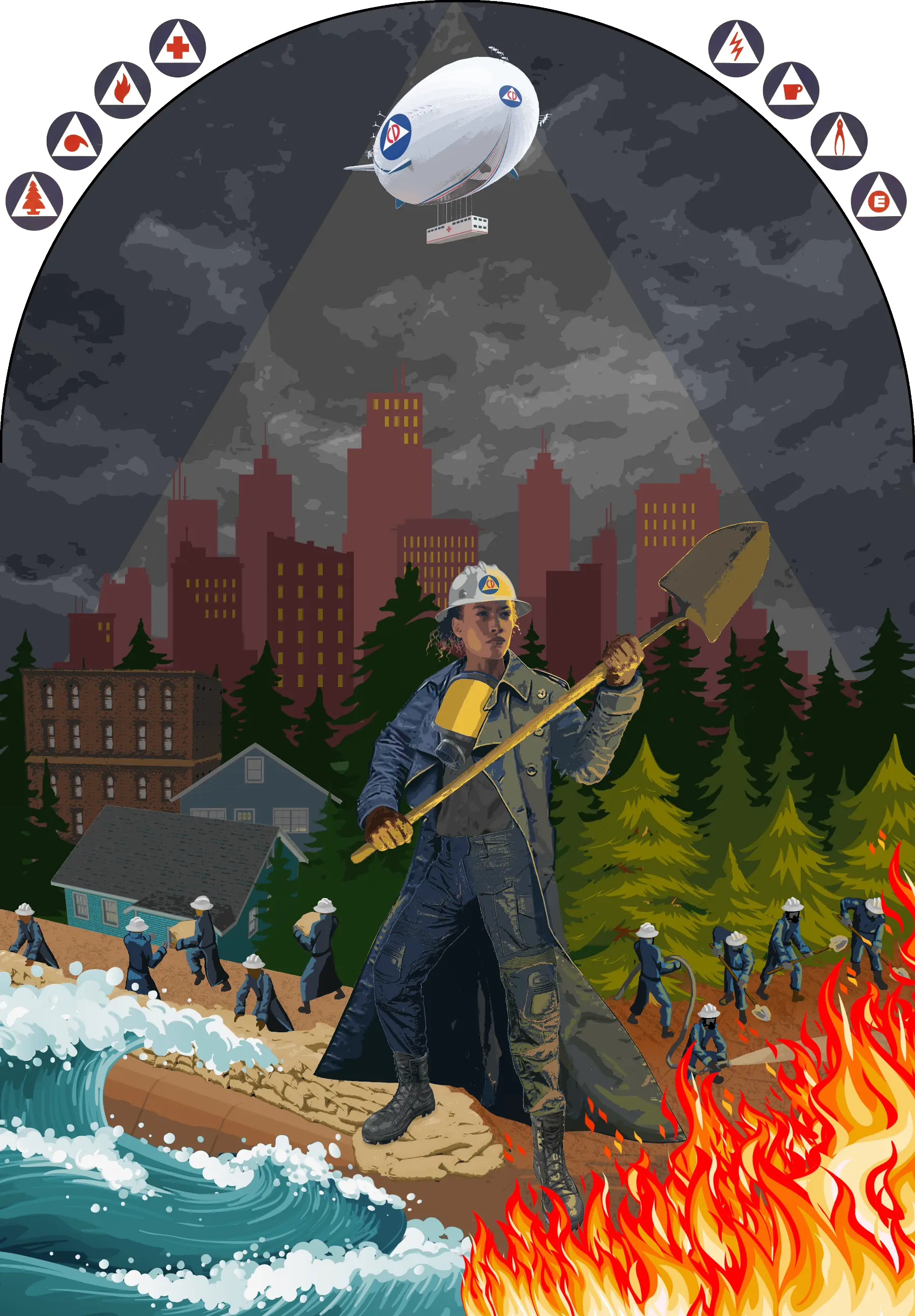I’m not sure why but I’ve always found the Civil Defense to be really cool, and I often try to work it into my stories in one form or another (though none of those have been published yet). When I was helping with reorganizing FA!’s box text on the military, I thought it’d be a good addition.
It fulfills the role of being an organized, primarily civilian, primarily voluntary disaster relief organization. It has a long history in dozens of countries, in one form or another, all around the world. Its provided training, search and rescue, preventative measures, emergency response, and recovery, in everything from wars, to natural disasters, and even the Chernobyl disaster. And the different formats used in all those countries give us a historical precident for almost any organizational structure we choose. Want to make it an auxiliary of a military branch? The US did that at some points. Directly part of the military? Some Soviet countries ran it that way. A purely civilian volunteer charity? Britain has recently revived theirs and is running it like that. They can even function as a volunteer militia, like the British home guard, or the American Civil Air Patrol who Wikipedia claims once dropped bombs on axis submarines.
And they have history. People like that kind of lineage, the sense of being part of something that dug people out of rubble in the blitz, that cleared radioactive debris in Chernobyl. There's a long history of sacrifice and service to draw on. And one with comparatively few atrocities on the record.
They're even pretty cool visually. They have the iconic blue triangle motif common in most countries, and a blue and white color scheme not really associated with combat.
Whether you need someone to respond to wildfires, to assist paramedics, to build levees in a flood, or to distribute and build tornado shelters, it's not a far leap from what they've already done. Like Noir said on the discord, given the scale of the Global Climate Wars in the game’s backstory, it seems pretty likely that every government on the planet would start handing out shovels and white helmets again.
And I think it fits the anarchist influences in solarpunk. Putting some of the responsibilities and capabilities for disaster relief back in the hands of the community. It's also a decent role for a varied cast of characters in a RPG. People with regular lives and skills who can be tasked with a quest and be granted some degree of official legitimacy.
When I wrote up the Civil Defense section for the game manual, I tried to provide enough flexibility to allow players and GMs the option to adjust the local Civil Defense chapter to fit their campaign. I like the idea of modern chapters tracing their lineage to different local groups, a postwar militia here, a wildland fire fighter unit there. Like the Defense served as a way to bring various factions (especially armed ones) into the fold, providing them with improved legitimacy in trade for increasing oversight and standardization. So while they’re supplied and trained by the same organization, at the unit level they have some leeway in how they operate and what they specialize in, which can conveniently fit any campaign that wants to use them.

